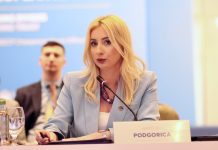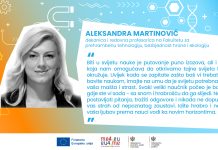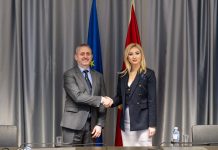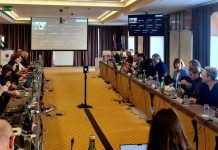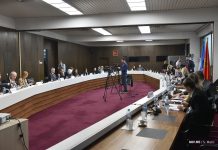The introduction to the Strategy for Informing the Public about Montenegro’s EU Accession 2014-2018 reads: “Bearing in mind that it is the entire society ultimately joining the EU, in the five years covered by the Communication Strategy we should aim to establish communication mechanisms and develop communication activities that will contribute to a better citizen understanding and greater interest in the process, as well as boost their support for the accession process.”
Informing and educating the citizens of Montenegro from all social structures is one of the pillars of the European Integration programme ran by the Centre for Civic Education (CCE). Hundreds of decision-makers and active participants in the EU integration policy-shaping process attended CCE’s education programmes over the past 12 years. Lately, the focus has been shifted to citizens who are not directly involved in the processes of policy formulation and decision-making, but are affected by those policies and decisions.
With this in mind, the CCE ran the project entitled EU Info-Bus on the Road to the EU (December 2012 – October 2013, supported by the EU Delegation in Montenegro Communication Budget and the Friedrich Ebert Foundation), during which they took symbolic bus rides to six municipalities in Montenegro – Cetinje, Danilovgrad, Kolašin, Mojkovac, Nikšić i Podgorica – and held over 45 activities, published nine bilingual issues of the European Pulse – the only magazine in Montenegro specialising in European integration, two publications entitled What We Negotiate and What the EU Negotiations Bring Us and Montenegro and the EU: Media Role and Importance in the European Integration Process, six thematic leaflets, and a great number of other promotion material. All this was done with the view to improving knowledge, level of understanding, and support to the EU integration process among the citizens of Montenegro through a broad education and information campaign.
The project entitled Inter-generational Learning for European Citizenship (October 2013 – November 2014, realised with the support of the EU’s Europe for Citizens programme), implemented together with partners from Italy, Bulgaria, France, Sweden, and Slovenia through a series of national and international workshops and additional activities, made a contribution to the establishment of an inter-generational dialogue between those who witnessed the birth of the European Union and those who do not share that experience. More precisely, the project offers the opportunity for the youngest and the oldest citizens to discuss the underlying processes behind European integration, debate on the importance of EU policies for citizens’ everyday living, and launch an inter-generational dialogue on the impact of European values, at the same time empowering the target audiences with the knowledge necessary for an active participation in the European Union democratic processes.
In cooperation with the public broadcaster RTCG we launched season one of the Ready for Europe quiz for high school students (December 2013 – September 2014, supported by the EU Delegation in Montenegro Communication Budget). This was done with the view to raising the level of awareness, knowledge, and interest among high school students across Montenegro on the EU development, its functioning, policies, as well as the accession process requirements and Europe’s rich cultural and art heritage.
The common denominator of all these and many other CCE’s ongoing activities is to boost public support and legitimacy of Montenegro’s EU accession process. Implementation of these activities has been marked by good cooperation between the civil society, the media, and government institutions, primarily the Ministry of Foreign Affairs and European Integration. Citizens benefit from direct communication by learning more on various areas, complex aspects, and the character of the EU integration process, which is changing their daily lives. The role of the MFAEI representatives has played a crucial role in supporting these initiatives.
Harmonising with the acquis is the basis and a sine qua non of EU accession. However, the application of adopted norms may be successful only if the society as such, through its institutions, starts implementing and the citizens start living the European values and standards shared by developed European democracies. The principles of European citizenship will become dominant, and this is the core ambition of all initiatives in this area, whether they be from the NGO sector, media, citizen groups, political projects, or institutions.
While visiting Montenegrin municipalities, CCE representatives were convinced that integration is a necessity. And not just European integration, but Montenegrin integration as well. All parts of the Montenegrin society need to work more closely together, must have more contact, meet each other, and integrate into a single European value framework. These projects have attracted notable interest among the citizens, and in addition to effective messages their quality was notable in inspiring dialogue, exchange of arguments, sharing of information, knowledge, and skills – and this is a postulate upon which democratisation and Europeanisation of all societies, Montenegrin included, are founded. It is therefore necessary for the NGO sector, the media, institutions, and others to use the time ahead to continue with an even more intensive and well argumented European and Montenegrin dialogue. This way the EU will be communicated in Montenegro in the best way possible, and, as a consequence, Montenegro will also be communicated in the EU in the best way possible.
Daliborka Uljarević, Centre for Civic Education (CCE) Executive Director



